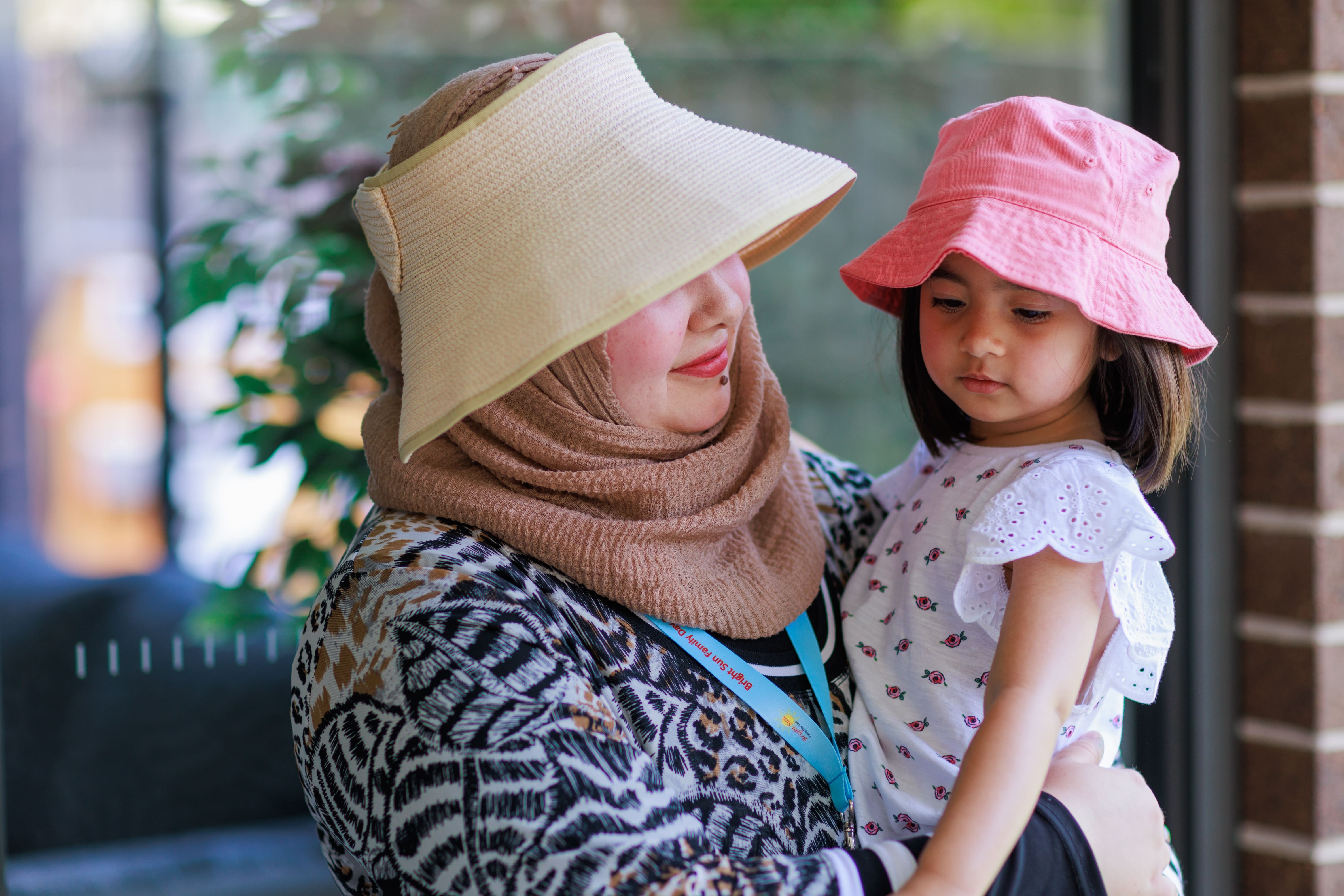On this page
Download this Fact Sheet:
Fact Sheet: The impact of trauma on babies and toddlers (135.5 KB, PDF)
Exposure to a traumatic event in the community, such as a natural disaster or the impacts of the pandemic, may affect how children see and experience their world, and their sense of security and ideas about the predictability of life.
A traumatic event in the community that affects older children, young people and adults can also affect babies and toddlers up to the age of 4 or 5.
The educator’s role
Babies and toddlers are only just beginning to learn about their emotions. They rely on the adults who care for them to keep them safe and help them understand and manage big feelings.
As an educator, the relationships and experiences you foster as part of daily practice support safety, attachments and connections for the babies and young children in your care.
Therefore, looking after your own wellbeing during a traumatic event in the community and coping well supports children’s recovery and resilience, as well as your own.
Understanding regulation
Regulation is the ability to understand and manage our feelings, behaviours and reactions in response to situations and events.
Babies and toddlers can learn about regulation when the adults in their life offer warm and positive interactions.
The presence of secure and reassuring educators may help babies and toddlers build strong relationships and attachments. This is known as ‘co-regulation’.
They can learn to:
- manage a range of feelings
- communicate about their needs
- build self-confidence by ‘helping’ you with tasks
- develop a sense of agency in the world.
This nurturing and trusting relationship becomes especially important when a natural disaster or other traumatic event in the community occurs.
While an educator isn’t expected to be a therapist, your relationship with the child can help support them through challenging times in many other ways.
Noticing the signs of trauma
After a traumatic event in the community, you can look for cues in the behaviour of babies and toddlers to understand what is happening for them, and support their sense of safety and regulation.
There isn’t one standard or expected way that a very young child will react following a traumatic event. Their response can be influenced by their life experiences, developmental level and how the adults in their life react to the event.
Common reactions to trauma
These are some common trauma reactions to look for in babies and toddlers up to the age of 4 or 5:
- They’re jumpy, easily startled or hard to settle, and their sleep may be disturbed.
- Changes in appetite.
- A regression in developmental skills like sitting, crawling, walking and toileting skills, depending on their age.
- Behavioural changes, such as increased irritability, outbursts and attention-seeking behaviour.
- An increase in clinginess or the development, or escalation, of separation anxiety.
- A decrease in responsiveness. You may notice a lack of eye contact or emotional responses, a numb appearance and less interest in their surroundings and opportunities for play.
- Becoming alarmed or visibly distressed by sights, sounds and smells that remind them of the event. Children may actively try to avoid these reminders, too.
- Children may relive the trauma by repeatedly talking, dreaming or asking questions about it. They may also develop new fears that aren’t related to the trauma or become worried that something will happen to their primary caregiver.
Be You resources
For professional development on strategies to support children following a natural disaster or other traumatic event in the community, see the Natural disasters and other community trauma and Therapeutic Storytelling modules of the Be You Professional Learning.
See also the Be You Fact Sheet on the role of early learning services in supporting children after a traumatic event in the community.
For strategies to look after your own wellbeing, see the Wellbeing tools for educators on the Be You website.
-
External links
Temperament: what it is and why it matters, Raising Children Network
Trauma and children – newborns to two years, Better Health Channel
Trauma responses in children aged 0-24 months, Emerging Minds
Trauma responses in children aged 2-4 years, Emerging Minds -
References
Stifter C. A., Dollar J. M. & Cipriano E. A. (2011, April). Temperament and emotion regulation: The role of autonomic nervous system reactivity. Developmental Psychobiology, 53(3), 266-279.
Kuypers, L. (2011). The Zones of Regulation.
